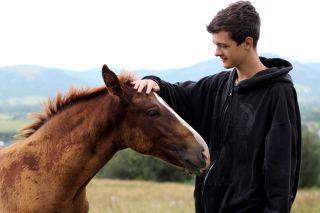Unconscious
Counseling People With Unusual Abilities
Psychological difficulties can arise because of unusual abilities.
Updated July 22, 2023 Reviewed by Ray Parker
Key points
- It is important for clinicians to strive to accept and understand patients’ unusual abilities.
- Unusual abilities include multiple subconscious skills, including helpful interactions with hallucinations.
- Patients can be encouraged to use their unusual abilities as part of therapy.
Patients typically are referred for counseling when they encounter significant difficulty in their lives. Sometimes the difficulty arises because of their unusual abilities, which often can be better delineated with the use of hypnosis.

For example, Daniel, a 14-year-old patient I have introduced in previous posts, presented with insomnia and a refusal to attend school. Our work together involved teaching him how to use hypnosis and interact with his subconscious.
As part of our work, I learned that he could allow his subconscious to interact with me through finger motion, speech, drawing, and typing.
Daniel’s subconscious reported encounters with demons, angels, spirits of dead people, auras, and abilities to use hypnosis as a way of interacting with animals. As I have described previously about several patients, I accept such reports at face value and use them within therapy as appropriate. Generally, I have avoided using the term hallucinations to describe Daniel’s encounters because of the negative implications of that word.
I believe it is important for Daniel to have access to a clinician who understands and is supportive of his thought processes, and thus able to counsel him appropriately regarding how he might deal with anxiety or other psychopathology, which might arise because of his unusual abilities. Also, such a clinician could coach him about how he might use his abilities for his benefit.
The following anecdotes illustrate some of Daniel’s reports of how he dealt with various life experiences and challenges, and how he was counseled given his abilities.
The Spirits of Passover
During our first year of working together, Daniel reported that he was worried because sometimes at school he would notice tremoring of his hands for no apparent reason. His subconscious explained that this occurs when it senses spirits nearby. Daniel expressed relief following this explanation.
Soon thereafter, Daniel was invited to attend his first Passover Seder. Daniel is Christian but has an interest in Judaism. He learned that as is described in the Bible, at a Seder Jewish people celebrate their exodus and freedom from Egypt after they had been enslaved for 400 years. During the Seder, the story of Exodus is retold, as part of an elaborate meal.
Daniel told me that at the Seder he asked his subconscious where it was while the children of Israel were at the foot of Mount Sinai to receive the Torah. He said his subconscious told him that it was observing the scene as if from above. Also, he reported that during the Seder, when the prophet Elijah was invited to the table as part of the annual ceremony, he felt his hands tremor.
Daniel told me that he wondered whether he saw the Mount Sinai event from above because his soul had not yet been born at that time. I told him that it is a Jewish belief that all Jews, who had ever lived or would ever live, were present when the Torah was given.
However, I wondered why he would have had that experience as a Christian. We discussed that Daniel’s hand tremor when Elijah was mentioned was related to his subconscious assertion that it can sense spirits.
I believe that my acceptance of Daniel’s unusual Seder experiences served to provide him with increased self-confidence (as opposed to self-doubt that might have developed had Daniel recounted his experiences to an authority figure or peer who expressed incredulity about them).
Studying in Longhand
In college, Daniel was a very serious student. In his first trimester, he told me that he often ran out of time to complete his homework. He explained that he became anxious about his difficulty with his assignments because he realized that college would become even more challenging in later years.
I was puzzled by this report since Daniel was a smart and capable student, who was enrolled in only four introductory classes, which should not have been that difficult for him.
Daniel explained that his studying method involved writing out his study material in longhand, which was a laborious process. I reflected that this would take many hours given the amount of information presented in college-level classes. I suggested that instead perhaps he could think about using his hypnosis abilities to write in longhand on an imaginary whiteboard.
Two weeks later, Daniel reported that his study time was cut nearly in half using the whiteboard technique. He completed college with a nearly perfect GPA.
The Horse Whisperer
Daniel’s life-long dream was to become a veterinarian. During the summer after his sophomore year in college, he had the opportunity to intern with a veterinarian. Part of his responsibility was to assist with horses who were being euthanized because of their old age or infirmities.
Daniel told me that this experience was especially hard on him and caused him great distress because he loved horses.
Indeed, Daniel had been involved with horses since his early adolescence when he attended horse camp on several occasions. After we started working together, Daniel even chose to use hypnosis with the horses at camp, perhaps in a way similar to how horse whisperers operate.
It is thought that horse whisperers pay close attention to the psychology of horses by observing their body language including expressions and movements. The whisperers can communicate with the horses by maintaining positive intentions, calmness, patience, and use of their own body language.
Daniel told me that he just opened his mind to the horses while he was in hypnosis. He said they were able to hear him, and he could hear them. Daniel told me that he even found out about the spiritual life of horses.
He explained that they were full of gratitude, except if they were abused, in which case they kept asking, “Why?” Given this information, I reflected on how human spirituality often involves gratitude as well.
Daniel used his ability to interact with horses to calm them down before they were to undergo medical procedures. Therefore, to help deal with his great discomfort relating to euthanasia, I suggested that he talk to them before and after they died. A week later Daniel told me that the horses were happy both before and after they died, and said that thereafter he felt at peace with the euthanasia process.
The Takeaway
My interactions with Daniel demonstrate the value of interactions with a clinician who well understands, accepts, and recommends the utilization of individual patients’ abilities as part of their healing process.




